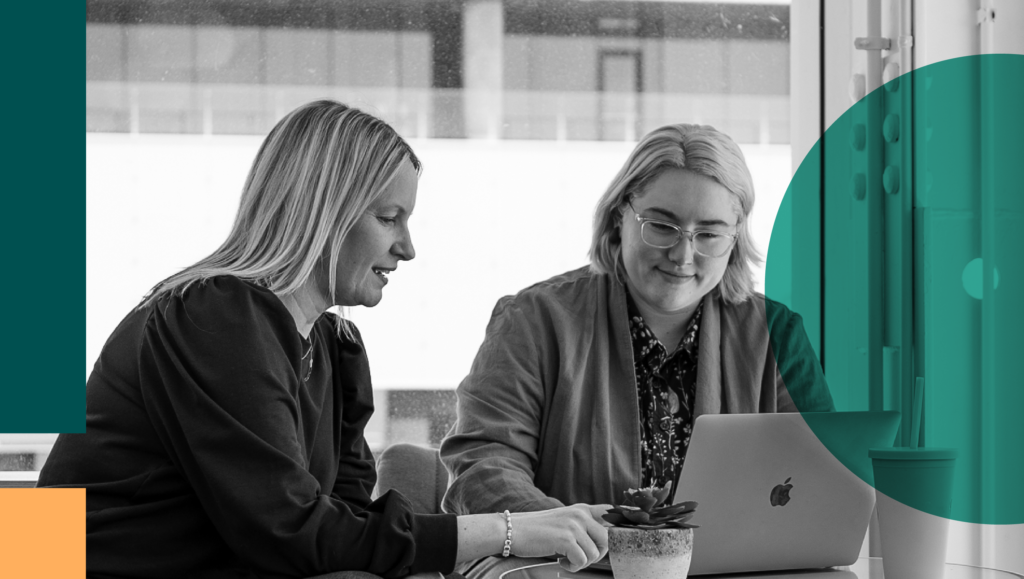By Leanne Prewitt – President & CEO
“If you take care of people, they’ll take care of the business.” Our founder, Doug Smith, built Ervin & Smith on this simple idea. And I couldn’t agree with him more. The extremely smart and talented people who work here make our success possible. So my executive team and I use this “taking care” philosophy to craft policies and make decisions that keep employee mental wellness top of mind.
Of course, treating your employees as whole people isn’t an entirely novel concept, and there are many statistics on the business benefits of happy, healthy workers.
But even with all the data showing the business case for supporting the mental health of your employees, a lot of companies still aren’t doing much, or their initiatives aren’t widely adopted. Why is that?
If we want to give CEOs the benefit of the doubt, it could be that they’re people, too — overwhelmed by competing demands and needs — and this item just keeps falling to the bottom of their to-do lists.
A more cynical view on why some mental health initiatives fail is because they’re too focused on the impact on the bottom line. To have success, mental health initiatives must be authentic to your company culture and built based on your genuine care for your team.
Mental health is personal (and connected).
We’ve built our expertise on helping executives navigate the ever-changing world. So, of course, that extends to our team members as well. The world is complicated, and folks are balancing an unprecedented level of stress and uncertainty. They need policies to support that reality. And I am no exception.
After the birth of my daughter, I experienced postpartum anxiety and depression that made it harder to balance work, life and my well-being. The pandemic happening at the same time certainly didn’t help. But that experience made me realize how important it was to share my struggles with the team. Being open is key to building a culture where we can be real about what we’re going through — without the stigma.
A new study from the Harvard Business Review confirms that telling stories like these has an impact. After employees shared their mental health struggles with coworkers, there was an 8% increase in usage of company mental health services. Our experience mirrors that.
How we support mental health.
When 1 in 5 U.S. adults live with a mental illness today, it’s not a question of if your workers need support, it’s a matter of how. We focus on the “how” by updating our perks and benefits each year to best meet the needs of our employees at the time. Below is a list of some of the things we’ve tried that have had a big, positive impact.
- Self-managed paid time off: No accrual required. After the first 90 days of employment, our workers are empowered to take time off when and how they want.
- 18+ agency closure days per year: Our agency closure dates go well beyond standard U.S. holidays. This gives the entire team time for complete disconnection from work.
- Flexible, hybrid scheduling: While we love the buzz of having everyone in the office, we know life doesn’t always make that possible. We offer flexible scheduling where our employees can adjust their work hours and location based on the day — whether they need to leave early for a kid’s choir concert or work from home to wait for the plumber.
- Annual wellness stipend: We put our money where our mouth is by giving each employee dollars to spend on whatever adds more mental, physical and emotional wellness to their lives. Workout classes, new tennis shoes, spa days, books, trainings and even a comforting cup of fancy coffee are all approved expenses.
- 12 weeks fully paid new child leave: Our new child leave policy is designed to be as inclusive and easy to use as possible. 100% paid. No tiers based on seniority. For birthing and non-birthing parents. And it includes adoption, surrogacy, child placement and foster care. New parents should be able to focus on caring for their child without concerns about getting paid or navigating complex policies.
- Personal development coach: All employees can meet with our staff coach each month to work on just about anything — self growth, career advancement, help with conflict, relationship management and more.
- Personality assessments and tools: Not all brains are the same. We take time to learn about ourselves and each other through personality tests and trainings. This helps us build trust and increase comfort to share what we need from each other.
- Team building: Through weekly happy hours, quarterly all-hands meetings and a team-building stipend, we create opportunities for real connection. We know that people who feel like they have close friends at work report being happier and more fulfilled.
- Choosing the right insurance provider: There are a lot of factors that go into choosing medical insurance for our team. Affordable access to mental health services and providers is one of the factors we consider.
While our exact perks change from time to time, our “be real” core value remains the same and keeps us focused on continuing to grow our open and honest office culture. One where people aren’t afraid to publicly put therapy appointments on the calendar or share when they’re feeling burnt out.
I’m not saying we’ve figured it all out, but I’m really proud of our progress. If you have ideas that work for your team, I’d love to hear them.
– Leanne
